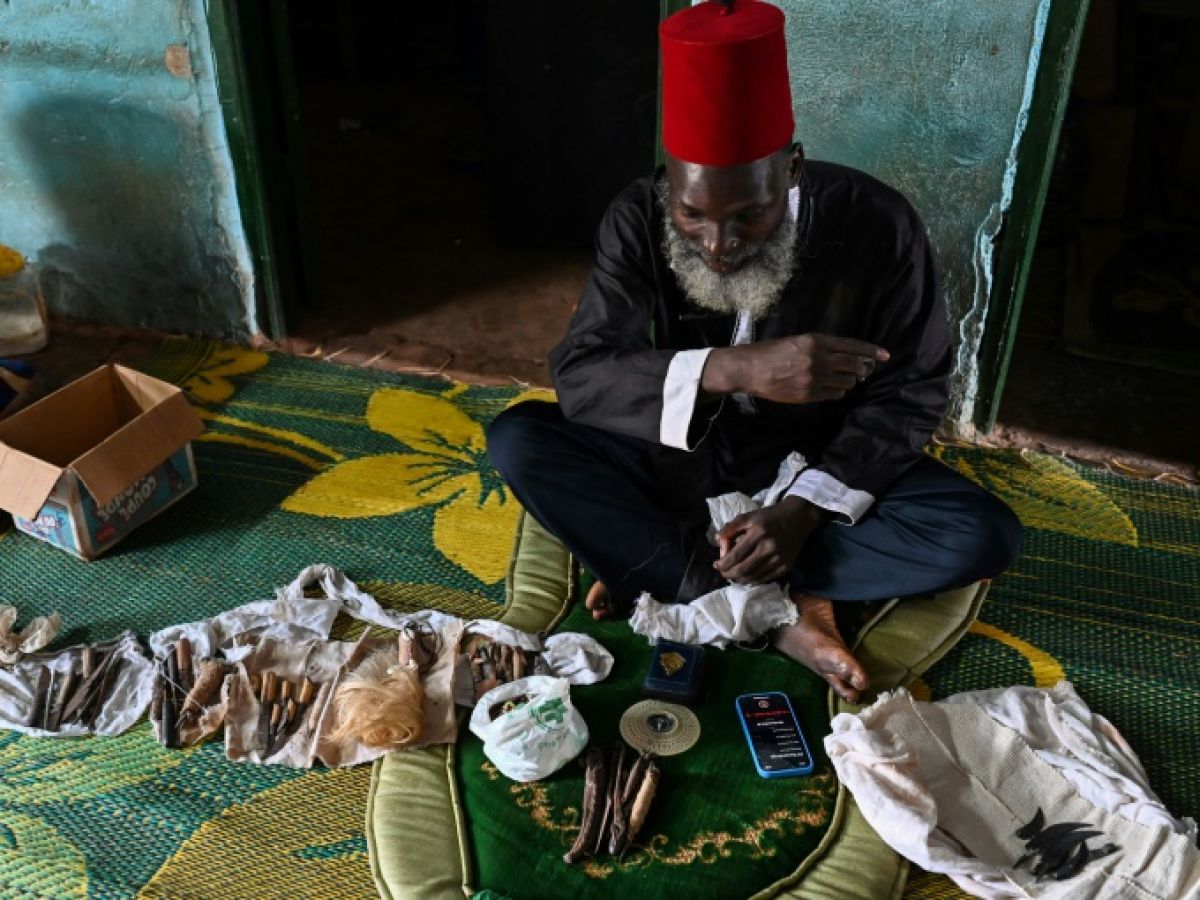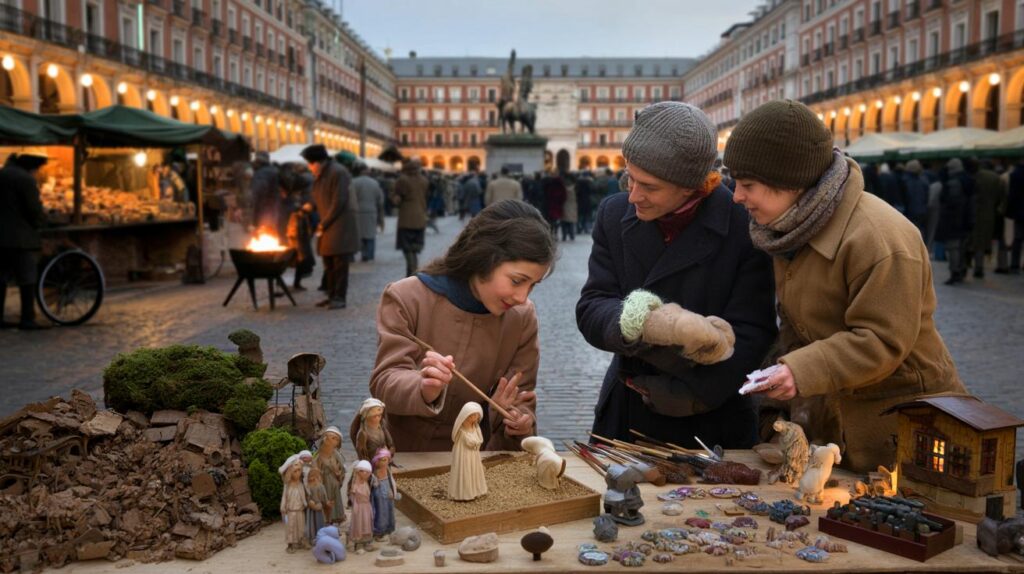When he was a fetish priest, convinced that it would bring him "power", the Ivorian Moussa Diallo (*) regularly coated himself with an ointment made from the clitoral glans of a circumcised woman reduced to powder.
"I put it on my body and face for three years" about every three months, "I really wanted to be a great leader," the fifty-year-old confided to AFP. That was about ten years ago, when he was consulted as a sorcerer and healer around Touba in the northwest of the country.
This case is not unique. In several regions of Ivory Coast, "this organ is used to make love potions, have money or access high political functions", reports Labe Gneble, director of the National Organization for Children, Women and the Family (ONEF).

On the underground market, its price can exceed the minimum wage (75,000 CFA francs, 114 euros).
In Touba, "we hear that it is very much taken for mystical practices," confirms police lieutenant N'Guessan Yosso.
Following interviews with former fetishists and circumcisers, researchers, NGOs and social workers, AFP was able to establish the existence of trafficking in clitoral glands from circumcised women, transformed into powder and sold for the powers attributed to them.
The origins of this illegal trade are obscure and its scale difficult to estimate. But local actors are convinced that it constitutes one of the obstacles to the fight against excision, banned since 1998 in Ivory Coast.
– “Pile with stones” –
Around Touba, at the time when he was a fetish priest, a figure sometimes considered a traditional doctor, Mr. Diallo was often approached by circumcisers wishing to be protected from evil spells.

This genital mutilation, most often practiced between childhood and adolescence, can be considered by families as a rite of passage to adulthood or a means of repressing a girl's sexuality, explains UNICEF.
Perpetuated for centuries by different religions in West Africa, it constitutes a violation of fundamental rights according to UNICEF. In addition to physical and psychological pain, its consequences are serious and even fatal: sterility, complications in childbirth, infections, bleeding, etc.
In the middle of the forest or in a house, Mr. Diallo accompanied the circumcisers to a sacred place for the occasion of one or several dozen excisions. Close to these women, he could thus obtain the famous powder.
"When they cut the clitoris," the circumcisers "first dry it for a month or two" and then "pound it with stones," he describes.
The result is a "black powder" which they sometimes mix with "leaves, roots, bark" or "shea butter".

They can sell it for around "100,000 CFA francs (152 euros) if the girl is a virgin", "65,000 CFA francs (99 euros) if she has already had children" or barter it for services, continues Mr. Diallo.
According to the man, who now campaigns against female genital mutilation, the trafficking continues.
In the village where he lives today, he says he recently obtained a powder from a circumciser. A mixture of human flesh and plants, he says, which AFP was able to observe without being able to have it analysed. The product is impossible to obtain without a financial transaction.
– “Organ trafficking” –
Depending on the village, the clitoris of young girls and young women is usually buried, thrown into a river or given to their parents, former circumcisers explained to AFP.
But one of them, interviewed in the west of the country on condition of anonymity, confirmed the occult use of clitorises torn from women.
“People would pretend to be the girls’ parents and leave with the clitoris,” she recalls.

Among these impostors were fetishists who used the organ during "incantations" and then sold it, she claims.
Another accuses fellow sisters of being complicit. They "gave it to people who were doing bad work" for mystical purposes.
Mutilated as a child, Bintou Fofana (*), a thirty-year-old, recounts how her mother, who was aware of this trade, explained to her that she had wanted to save the removed flesh.
Under Ivorian law, the trade in the glans of the clitoris is "organ trafficking" and "receiving stolen goods" punishable, like excision, by several years in prison and fines, emphasizes lawyer Marie Laurence Didier Zeze.
The police prefecture based in Odienne, which covers five regions in northwestern Ivory Coast, says it has never prosecuted anyone for such trafficking.
"People do not give information about sacred things," laments Lieutenant N'Guessan Yosso.
According to residents interviewed in Touba, circumcisers, considered prisoners of evil spirits, are feared and respected.
– “Wacky” –
"The clitoris cannot give powers," dismisses Abidjan-based gynecologist Jacqueline Chanine, "that's crazy."
However, the practice is found in several regions, researchers testify.

The socio-anthropologist of health Dieudonne Kouadio was able to see this during work on excision carried out 150 km north of Touba, in the town of Odienne.
"I was presented with a box which contained the ablated organ, dry, in the form of a slightly blackish powder," says this researcher at the University of Bouake.
He shared this discovery in a study carried out with the Djigui Foundation, a major player in the fight against female genital mutilation in Ivory Coast.
The Ministry of Women, which validated the conclusions of this study published in 2021, did not respond to AFP's requests for comment.
In the Denguele district, which includes Odienne, farmers "buy clitorises. They mix the powder with seeds to improve the production of their fields," explains Nouho Konate, a member of the Djigui Foundation, which has been collecting information on excision for 16 years.
During the awareness-raising activities he organizes, Mr. Konate reveals the existence of this trafficking to the parents of young girls, who are "devastated."
Further south, in the centre-west, women use powdered clitorises as aphrodisiacs, hoping for example to prevent their husbands from being unfaithful, explains criminologist Safie Roseline N'da, author with two sociology researchers of a scientific article on the fight against excision published in 2023 which mentions this traffic.
The three scholars also report the use of the blood of circumcised women to worship gods.
This is not the only occult practice linked to the use of a body part in this country, according to Me Didier Zeze.
"Mysticism has a central dimension in daily life, it affects all spheres of social, professional, romantic and family life," notes the Canadian anthropologist, Boris Koenig, a specialist in occult practices in Ivory Coast, without this generally being "illicit," he adds.
– “Survival” –
This trade is "one of the reasons for the survival of female genital mutilation" in Ivory Coast, denounces the Djigui Foundation as well as Onef, an NGO fighting to improve the living conditions of women since the 1990s.
The prevalence rate of excision has fallen in the country since its ban and remains below the West African average (28%), according to the OECD (Organisation for Economic Co-operation and Development).
But one in five Ivorian women still claims to have undergone genital mutilation and in certain regions of the north, the rate can exceed 50%.
In the places where the former fetish priest Diallo was called, up to "30 women" were excised in one day, he assures. The period from January to March is preferred, when the hot and dry harmattan allows for better healing, he specifies.
In Touba, agents of the only social centre in the region note that excision continues clandestinely and remains difficult to assess.
It hides behind traditional festivals with no apparent link, they say, referring to the arrival of circumcisers from neighbouring Guinea, located a few kilometres away and where the rate of excision exceeds 90%.
(*) Names have been changed.


